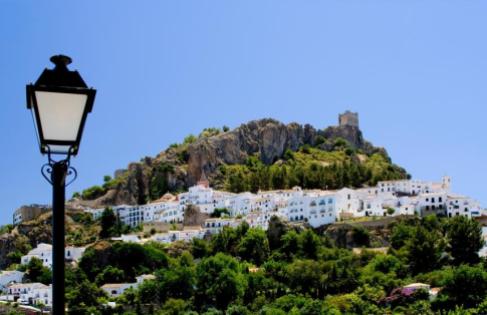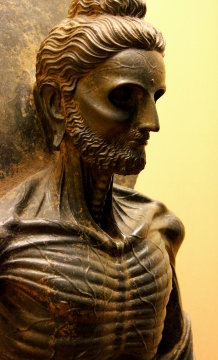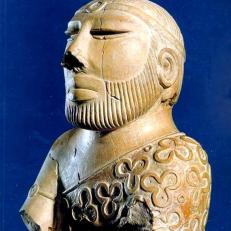On heritage
“The ground on which we stand is sacred ground. It is the dust and blood of our ancestors.” – Chief Plenty Coups, Crow
Whenever I visit a new city, the first thing I like to do is pay my respects to her oldest monument.
Like the towering 12th century St. Stephen’s Cathedral in Vienna. The ancient, sprawling Palatine Hill in Rome. A ruined Moorish lookout tower in the village of Zahara de la Sierra in Andalusia. The 1000-year old dragon tree on the island of Tenerife.
Or, when I’m back in my hometown Lahore, the 10th century shrine of Ali Hajveri, the city’s patron saint and one of South Asia’s most celebrated sufis.
It’s kind of like how you make it a point to greet elders first at a family gathering, or how you always pop in to say salaam to Aunty Uncle or Daadi Daada when calling at a friend’s.
Why is it considered proper to do this?
Because age, when tempered by experience and good sense, is wisdom. And wisdom commands respect.
Our parents, grandparents and great-grandparents are the pillars of our community, our connection with the past. And much of who we are – our tastes, our temperament, the intonation of our voice, that dimple on the chin – we owe directly to them.
So it is with cultural heritage.
It’s an intangible thing, our relationship with heritage; a deep, spiritual connection that can’t be quantified, only experienced.
Like the feeling of awe you get when entering a breathtaking mosque or cathedral, in all its glazed tiled, stained glass, soaring glory. The wonder of walking through a mind-blowingly modern city like 1st century Pompeii. The peace of contemplating the Fasting Buddha at the Lahore Museum.
Or the tingling horror of seeing before you the torture instruments used during the Spanish Inquisition.
Heritage speaks to us. It moves us, because it’s an intrinsic part of ourselves. It tells us who we are, where we come from and what we’ve done – for better or for worse. Heritage gives us identity.
So when human beings destroy cultural heritage – whether purposefully, as invaders and extremists have done throughout the ages, or out of sheer stupidity and greed, as often happens in Pakistan – they aren’t just blowing up bricks and stones, or splashing white paint on a delicately frescoed tomb.
They’re erasing the identity of a society. By blotting out pieces of the past, they leave us a fragmented, rootless future. They leave us without a story.
Years and years ago, there used to exist a temple here. A sculpture. A library. A place of beauty, intelligence and culture.
But you will never know it. You will never wander its ruined pathways, finger its mossy stones, or feel that inexplicable sense of belonging, the warm pride of knowing, “My ancestors built this. And I am a part of this mysterious, timeless story.”
What will you build on now? Where will you find inspiration? How will you write the next chapter of the story?
I often feel a strong sense of déjà vu when visiting old places. There is power there, the coming together of a thousand wills, of history being constructed, brick by brick and thought by thought. Being in these places, you begin to see things differently; you begin to understand why people look the way they do, why they speak in a certain way, why they create certain things – why they are who they are, for better and for worse.
It’s like seeing old photographs of your grandparents and great-grandparents and starting at the resemblance: “That looks just like me!”
You may not like what you see, but you can’t ignore it’s there.
Cultural heritage is part of our DNA. We have a right to claim it, to cherish it, and interpret it the way we choose.
And we have a duty to preserve it, so our children and their children may also have a sacred place to call their own.
So they may also draw on that ancient repository of stones and memories, be reminded of where their ancestors went wrong – and where they went beautifully right.
So they may continue writing the story.

















April 28, 2017 at 6:29 am
Speechless! as always. I can experience of being at the places through your words. Keep Writing.
June 15, 2016 at 7:02 am
Lovely photography, awe inspiring how you weave the threads of culture, heritage,history and the many legeds which are now part of folklore in the communities that evolved from the “dust of empires” . Absolutely love it and you, Abbu